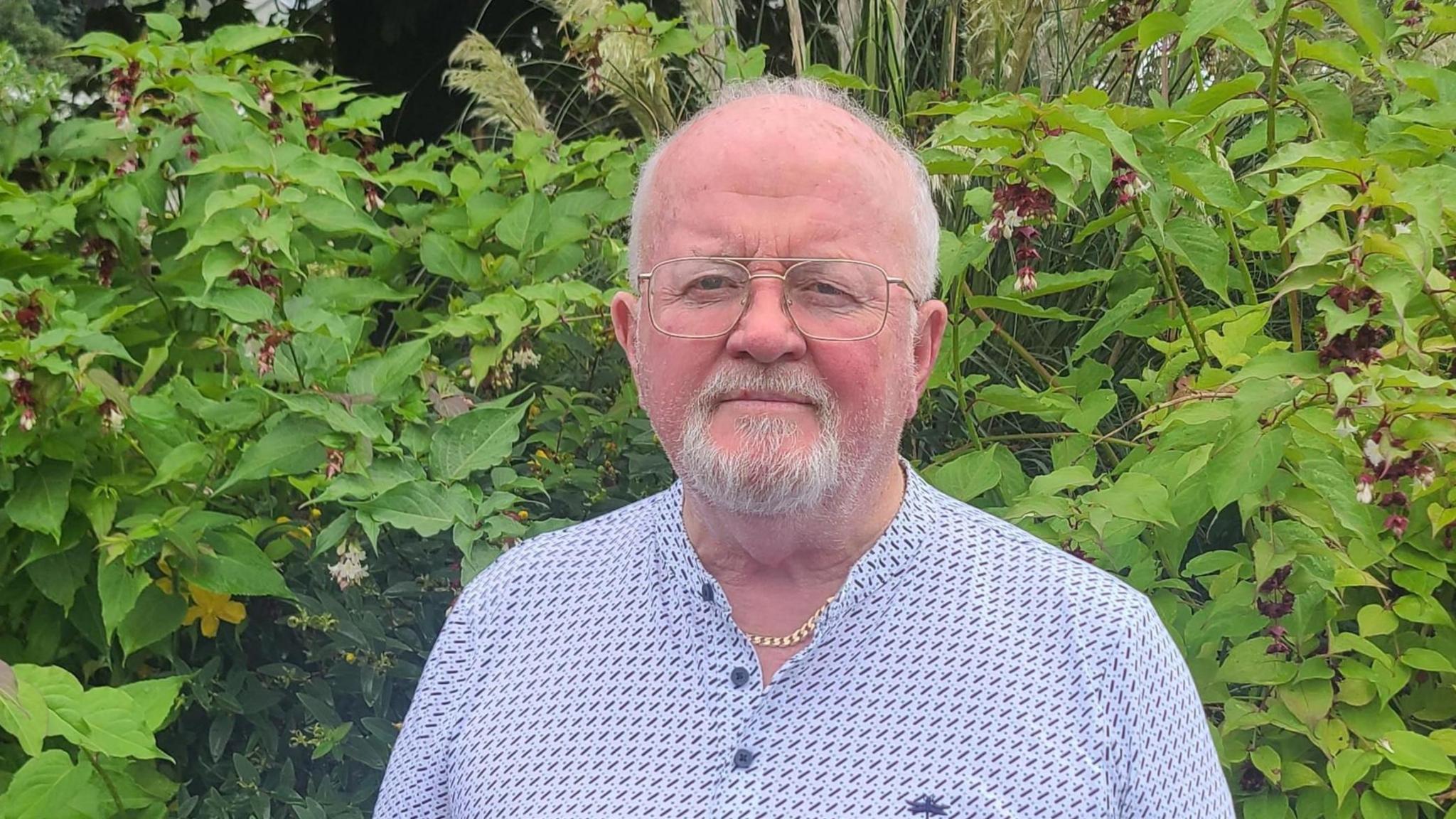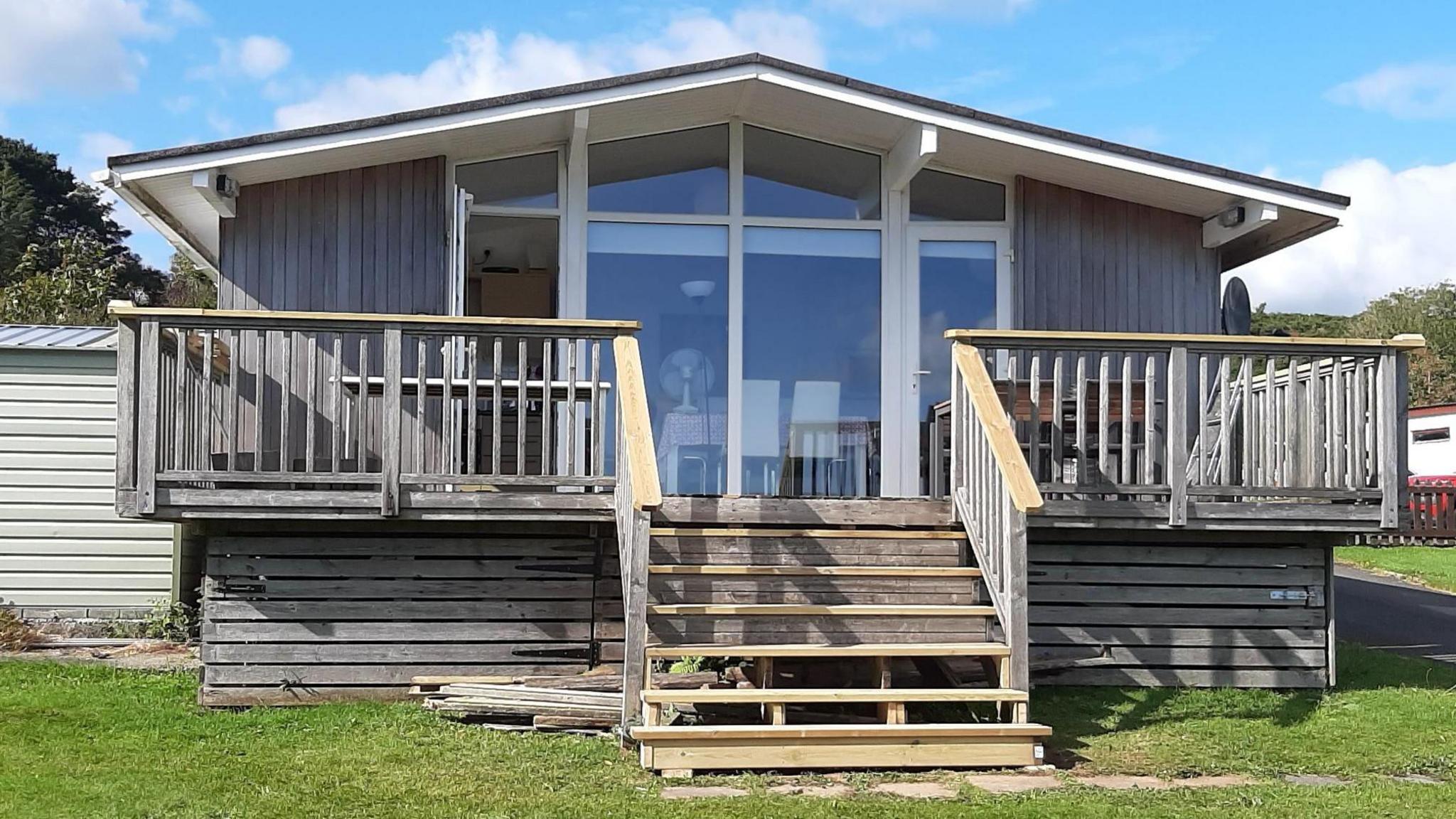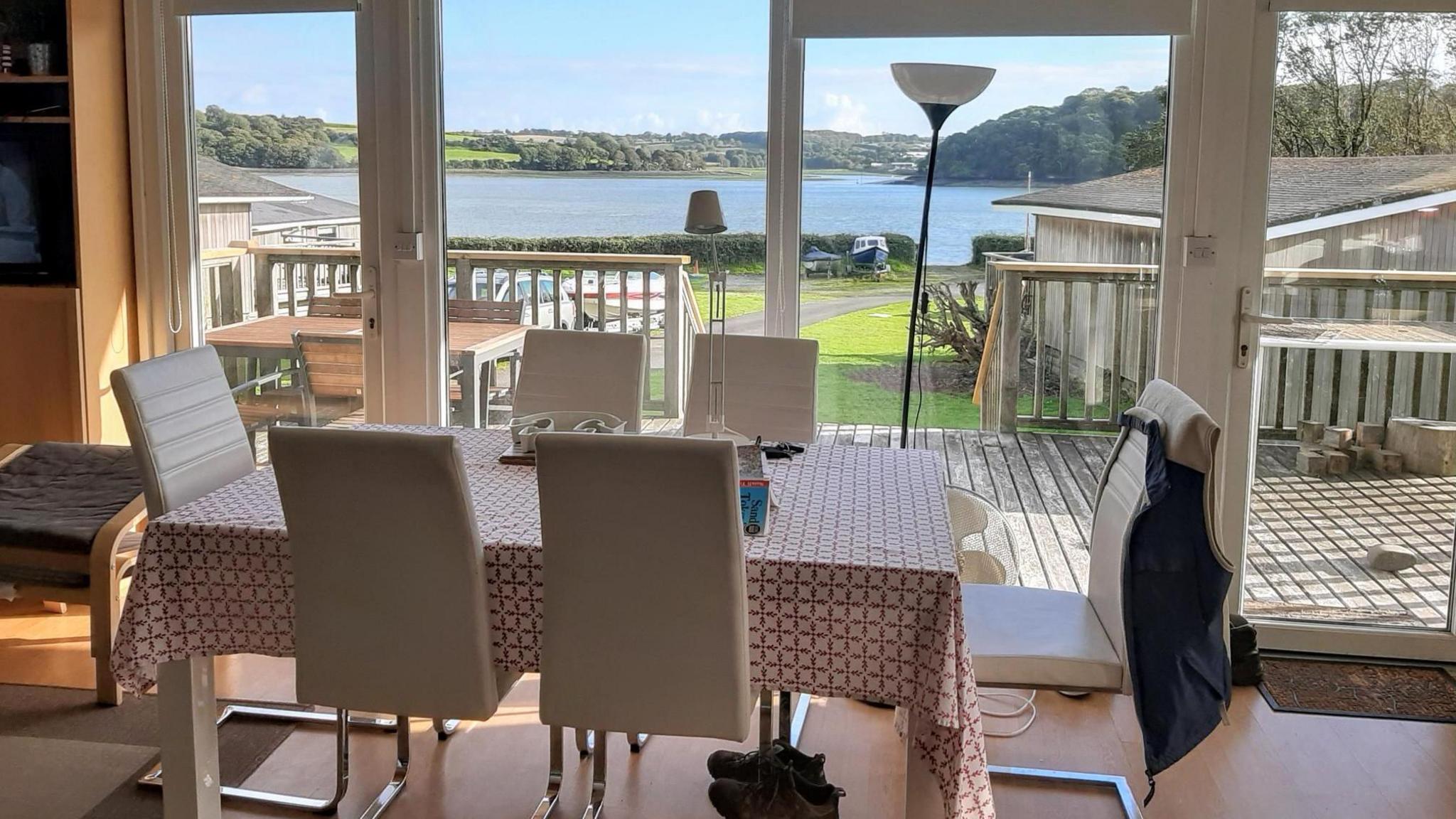Owner pays 300% second home tax on wooden chalet

Dr David Robinson pays a 300% council tax premium on his wooden holiday chalet in Pembrokeshire
- Published
"Is it worth keeping the place?"
Retired doctor David Robinson said he now pays a 300% council tax premium on his wooden chalet in Burton, Pembrokeshire, which he purchased about 11 years ago so his six children and 11 grandchildren had somewhere to visit in west Wales.
He dubbed the recent 200% council tax increase on second homes on the Welsh coast "a kick" and "counterproductive" for an area reliant on tourism, adding that his place would be unsuitable as a permanent home for locals.
The number of second homes for sale in the county has trebled since council tax increased with 135 second homes in Pembrokeshire on the market in July.
Second homes for sale treble after council tax hike
- Published6 September 2024
New rules begin on second homes and holiday lets
- Published1 September 2024
Can building your own home tackle housing crisis?
- Published25 August 2024
"It is getting to the point now where, really, is it worth keeping the place?" said Dr Robinson from Llantrisant, Rhondda Cynon Taf.
He said he feared if he put it on the market it would not sell, with it being a wooden structure, and people would be unable to get a mortgage on it and would need cash to buy it.

Dr Robinson bought his chalet 11 years ago as somewhere his children and grandchildren could visit
Dr Robinson said he was sympathetic to the concerns of locals unable to get on the property market in Pembrokeshire, but said he didn't believe buying the chalet had taken away housing stock for locals.
"It's not really affecting anyone else’s market, it is purely for people visiting and short-term holidays," he said.
"It is a bit of a kick to see this disappearing.
"I think [the increased council tax for second-home owners] will be counter-productive."

The second home owner says his holiday chalet doesn't impact locals being able to buy a home
Adam, 27, from Newport, Pembrokeshire, said despite having a well-paid job at a pharmaceutical company, property prices meant he was still living at home.
"The options are limited. Rent is expensive and the idea of getting a mortgage as a single person is very unlikely."
He said even if he did get a mortgage, he believed he would have to move outside of Pembrokeshire because of prices in the county.
"It's not ideal.
"I've always lived near the beach and not having that is going to be a bit of a shame, but that's the way it is."
He said the increase in council tax was no deterrent to second-home owners.
"If you can afford a second home in Newport that's just an easy way for the council to make money, it doesn't affect the home owners."
What are the rules for second homes in Wales?
In April 2023, the maximum level at which local authorities in Wales could set council tax premiums on second homes increased to 300%, external.
The powers are discretionary, meaning the decision on whether to charge a premium on second homes is a decision made by each council individually.
Pembrokeshire council has increased council tax on second homes by 200%, while Gwynedd's council has increased the tax by 250%.
In addition, since 1 September, people in Gwynedd wanting to turn a house into a holiday let or a second home also need to get planning permission.
The council said this was to tackle what it called a "huge housing crisis".
Where are the most second homes in Wales?
The areas of Wales with the highest concentrations of holiday homes were Gwynedd, Anglesey and Pembrokeshire, external, according to the 2021 Census.
Council tax data from 2023-24 suggests that the area with the highest proportion of second homes was Gwynedd, external, where 8.3% of all homes - where council tax was payable – were classed as a second home. Pembrokeshire was the second highest, at 6.5%.
Are second home owners in Wales selling up?
The number of second homes for sale in Pembrokeshire has trebled since the council tax increase. There were 135 second homes on the market in the county in July, compared to 38 the previous year, latest figures indicate.
What are the rules on second homes in England?
From 1 April 2025, second home owners in England can be charged up to two times the normal council tax rate, external.
Just as in Wales, these powers are discretionary and can be made by each local authority individually.
Cornwall council has agreed to charge an additional 100% council tax premium on second homes from 1 April 2025, external.
Analysis
by Teleri Glyn Jones
Second homes are an emotive issue- with rural and coastal areas of Wales fearing both the Welsh language and their communities are being hollowed out because young people can't afford to buy homes in their local area.
Coupled with the fact that those very same rural communities are so reliant on tourism, you have a thorny political issue.
The Labour Welsh government has been accused in the past of not doing enough to tackle these tensions and to deal with the root cause of them- a lack of affordable homes.
But in recent years there has been a more interventionist approach, with councils given the power to increase council tax on second homes and empty properties.
Here we see the potential consequences of those actions, and they appear to be having the desired effect - but of course the real measure of success will be whether those former second homes become family homes for local people.
If this was an easy problem to fix though, it would have been done by now. And there are many who fear the unintended consequences of creating a hostile environment to second home owners and holiday-makers.
Could tourism, the golden goose that sustains so many jobs along Wales' beautiful coastline, be the collateral damage of these well-meaning policies?